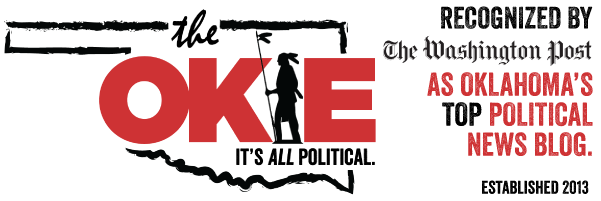Chris Forbes: 10 Tips for Effective Political Blogging
10 Tips for Effective Political Blogging
by Chris Forbes
Do yourself a favor, Google check yourself, before you Google wreck yourself.
What happens when you Google your name? Does anything come up? Do things you wish wouldn’t, show up in the search results? As the commercial says, have you been Scroogled? Search engines can be so unpredictable in what shows up in search results, but what can you do about it? One thing you can do is start blogging.
Of course you may know blogging is a handy way to manage your message and communicate with people. As a political leader you need to get the message of what you are doing “out there” to the people, because some citizens labor under the mistaken notion that you only work a few hours a day and then lean back on a plush couch while plebes dangle clusters of plump grapes over your mouth. As a campaigner you need to manage your brand reputation so opponents can’t convince voters that you make and eat puppy fajitas.
Blogging is useful for messaging. But blogging is also a way to talk to search engines like Google. When you write a blog, you are writing for two audiences: people and search engines. If you start the habit of blogging regularly, you will begin to see the results change for you on search engines, while at the same time new channels of communication opening with people.
Blogs are like friends, there are two kinds: the free kind and the kind you pay for.
There are many types of free blogs, Blogspot.com is one of the most popular. And as an advantage it talks well with Google—since Google owns it. Another good one is WordPress.com. WordPress is very search engine friendly too and has the advantage of offering a wide variety of templates, plug-ins, and free online training. To get started, just type in the URL of the blog service you like and fill out a little information and you can start blogging in minutes.
Another option is the paid blog. This approach is good when you want a custom look, or to use your blog with more of the flexibility of a traditional website. There are many companies who do custom blog sites (see http://mainstreetopen.com/gop/ for an example of a local company). The paid blog tools usually come with a lot of help from designers and developers who’ll gladly help you for a fee.
What is the difference between a designer and a developer? Usually about 40 lbs…developers drink a lot of Mountain Dew.
Once you set up your blog, your main task is to start using it. Only the blogs that are maintained are effective. So actually blogging is the main tactic for having an effective blog. Beyond that, here are some helps.
10 More Tips for Effective Political Blogging:
- Be Savvy: Think about what you want to say before you write it. The Internet is forever.
- Talk about Issues you are working on: You don’t have to comment on every political conversation in the universe. Use your blog to highlight what you are doing.
- Keep posts brief: A post as short as an email can go a long way. You don’t have to rewrite the 2,400 page Obamacare bill…no, wait you do…but not on your blog.
- Post on a schedule: Will you write daily, weekly, monthly? Start a schedule and try to write at regular intervals so your readers know when to check your blog.
- Syndicate: Every blog can RSS syndicate your content. This allows people to subscribe to your posts and get them in readers or by email. If you don’t know how to do that, find a Mountain Dew drinker.
- Repurposes content: You already have so much content. Emails, articles you read for research, reports. Look for content you can edit and use again for your blog.
- Use “Key Words.” For example, if your topic is “education,” use that word in the title, lead paragraph and body of your blog post. It makes it easier for search engines to tell what you are talking about.
- Fill in Meta Data: Blogs have places where you can also enter in the key words in your blog post. Too often people ignore these. But meta data is like food for search engines, feed the search engine spiders and they won’t bite you.
- Use Links: If you mention another blog, an article online, or a site, put a link to it. Readers like it because it’s handy. Search engines like it because they have very little joy in life.
- Connect your social media accounts: If you have readers on your blog, make sure they can see you are on Facebook and can follow you on Twitter. Put the links (preferably linked badges for these networks) toward to top of your blog’s home page.
Now that you have a blog, consider running a few Ad Word ads on Google. But that’s another topic for later.
Chris Forbes (ChrisForbes.org) is a frustrated ex-comic, indie film marketer, & Co-author of “Guerrilla Marketing for Nonprofits.” As an Oklahoma-based social media strategist he has been leading political social media campaigns since 2009. Follow @cforbesoklahoma on Twitter.

